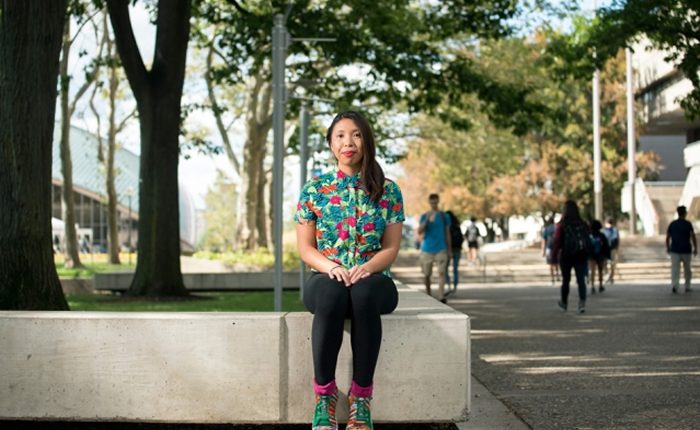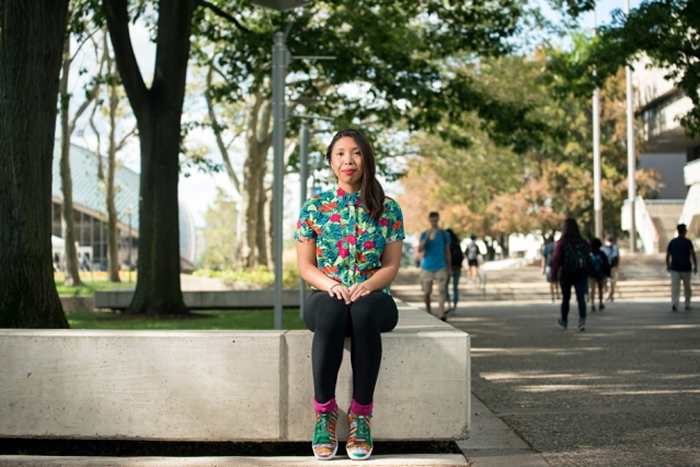PhD student Lily Bui works with communities around the world to gather data from the bottom up.
Lily Bui’s path to her PhD program in urban studies and planning at MIT has been a meandering one, yet along the way she has followed her passions while finding new ways to support communities at the grassroots level.
Whether she is helping citizens deploy air-quality monitors, improving cycling throughout a city, or gathering hyperlocal stories about climate change, Bui always thinks big, harnessing the power of regular people to make a difference in the world.
Bui found a way to combine her media background and her interest in helping communities when she became involved in a project called ISeeChange, directed by Julia Kumari Drapkin, that is taking a grassroots, citizen observation approach to climate change storytelling.
The project started small: Rural farmers in the pilot community of Paonia, Colorado used the website to input observations from their own backyards, such as when the tomatoes came in, or how many storms there were, creating a record of environmental change in the process. The project has since expanded considerably. Through a collaboration with NASA, ISeeChange has incorporated large-scale satellite data of carbon dioxide levels in the atmosphere alongside the hyperlocal environmental observations, and the website now compiles environmental observations from people all over the world.
“The idea is to give people ownership over the climate change discussion, because sometimes it feels very far removed from our everyday lives,” says Bui. “But really it’s something that on an everyday level affects us and that we can contribute toward [solving], whether it’s by taking direct action and installing solar panels, or helping document the change as it happens so that other people are aware that it’s happening.”
As Bui began nearing the end of her degree in Comparative Media Studies/Writing, a practicum class called Crowdsourced City that she took with Sarah Williams, assistant professor of urban planning and director of the Civic Data Design Lab, helped her chart her path forward.
“What that format means is: It’s not just a class where you sit and you learn how to write this code or map this thing and then turn in a paper,” explains Bui. “It’s more like, we’re going to Nairobi and we’re partnering with students from the University of Nairobi to address a problem.”
The class focused its research efforts on an informal network of buses called the matatu system that is used by many people in Nairobi to commute to work. Because the matatu system is not operated by the government, little is known at the municipal level about how it functions. Bui and her classmates spent their week in Nairobi collaborating with local students and meeting with insurance companies, drivers, city planners, and the national transportation service, in an effort to figure out how the city could improve data collection.
“This was the first time that I had worked in the context of a developing country, and I realized that the need is so much greater in these contexts. So that kind of changed the way that I thought about things,” says Bui. “How I want to frame future research is to look at where the need is much greater, instead of focusing on cities that already have a lot of resources.”
The course, along with others she took, showed Bui that there were opportunities in academia to do practice-based work, so she decided to pursue a PhD in urban studies and planning, advised by Williams. Now, in the first year of her PhD, Bui isn’t sure exactly where her degree will take her, but she is open to the possibilities and eager to get started.
“If there’s any place that I can do the weird stuff that I like to do, it would be in academia, and it would be at MIT,” says Bui. “I’m not quite satisfied with being pigeonholed into one role, and I think that’s just going to stay the case for the rest of my life.”
More information: Massachusetts Institute of Technology (MIT)



Comments are closed, but trackbacks and pingbacks are open.